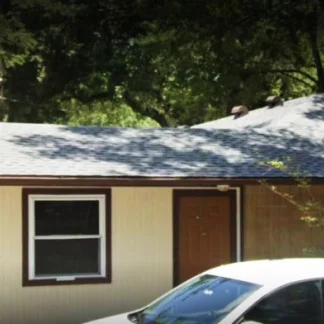Meridian - Detox Unit
Meridian Detox Unit, located in Gainesville, Florida, is a detoxification center...
Metamorphosis is a long term, residential drug and alcohol rehab for adults in Gainesville, Florida. They provide intensive inpatient care, court mandated programs, dual diagnosis treatment, and robust aftercare support. Their primary treatment modalities combine trauma informed individual, group, and family counseling with recovery focused life skills training.
Metamorphosis, in Gainesville, Florida, is a long term, residential addiction treatment center for adults providing intensive inpatient care and aftercare support. They also offer specialized programming for justice involved persons, young adults, and persons with co-occurring addiction and mental illness.
The residential program at Metamorphosis enables clients to focus on their recovery in a highly structured and supportive environment. Clients typically remain in residential treatment for six to 12 months, where they engage in intensive, trauma informed individual, group, and family counseling. The program also prioritizes recovery focused, independent living skills, including courses in coping, self care, wellness, anger and stress management, parenting, communication, financial management, and relapse prevention.
Metamorphosis promotes clients’ long term recovery through robust aftercare planning and support designed to facilitate their successful reintegration into their homes, workplace, and community. Transitional support for clients entering outpatient treatment, peer coaching, career counseling, and referrals for medical, mental health, and social service programs are included.
Metamorphosis accepts self pay based on a sliding scale fee schedule.
Contact us for more information: (352) 955-2450

Connect with Metamorphosis by calling their admissions team directly.
(352) 955-2450 Website Get DirectionsResearch clearly demonstrates that recovery is far more successful and sustainable when loved ones like family members participate in rehab and substance abuse treatment. Genetic factors may be at play when it comes to drug and alcohol addiction, as well as mental health issues. Family dynamics often play a critical role in addiction triggers, and if properly educated, family members can be a strong source of support when it comes to rehabilitation.
Group therapy is any therapeutic work that happens in a group (not one-on-one). There are a number of different group therapy modalities, including support groups, experiential therapy, psycho-education, and more. Group therapy involves treatment as well as processing interaction between group members.
In individual therapy, a patient meets one-on-one with a trained psychologist or counselor. Therapy is a pivotal part of effective substance abuse treatment, as it often covers root causes of addiction, including challenges faced by the patient in their social, family, and work/school life.
Life skills trainings involve all the skills a person must have in order to function successfully in the world. These include time management, career guidance, money management, and effective communication. Truly successful addiction recovery is based on the ability to not only live substance-free, but to thrive. Life skills teaches the practical necessities of functioning in society, which sets clients up for success in life, and therefore sobriety.
Group therapy is any therapeutic work that happens in a group (not one-on-one). There are a number of different group therapy modalities, including support groups, experiential therapy, psycho-education, and more. Group therapy involves treatment as well as processing interaction between group members.
In individual therapy, a patient meets one-on-one with a trained psychologist or counselor. Therapy is a pivotal part of effective substance abuse treatment, as it often covers root causes of addiction, including challenges faced by the patient in their social, family, and work/school life.
Life skills trainings involve all the skills a person must have in order to function successfully in the world. These include time management, career guidance, money management, and effective communication. Truly successful addiction recovery is based on the ability to not only live substance-free, but to thrive. Life skills teaches the practical necessities of functioning in society, which sets clients up for success in life, and therefore sobriety.
In individual therapy, a patient meets one-on-one with a trained psychologist or counselor. Therapy is a pivotal part of effective substance abuse treatment, as it often covers root causes of addiction, including challenges faced by the patient in their social, family, and work/school life.
Life skills trainings involve all the skills a person must have in order to function successfully in the world. These include time management, career guidance, money management, and effective communication. Truly successful addiction recovery is based on the ability to not only live substance-free, but to thrive. Life skills teaches the practical necessities of functioning in society, which sets clients up for success in life, and therefore sobriety.
Life skills trainings involve all the skills a person must have in order to function successfully in the world. These include time management, career guidance, money management, and effective communication. Truly successful addiction recovery is based on the ability to not only live substance-free, but to thrive. Life skills teaches the practical necessities of functioning in society, which sets clients up for success in life, and therefore sobriety.
Meridian Detox Unit, located in Gainesville, Florida, is a detoxification center...
Every Step We Take Group is a non-profit rehab located in Gainesville, Florida. ...
UF Health Florida Recovery Center is a private rehab located in Gainesville, Flo...
Alachua County - Mental Health offers services for mental health disorders inclu...